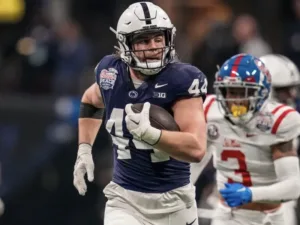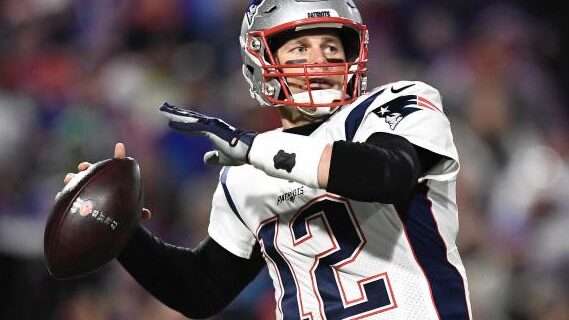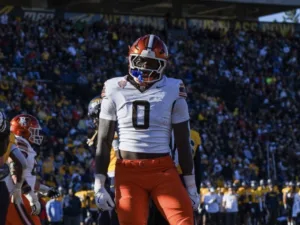
Can A Tight End’s 10-Yard Split Help Predict Their NFL Success?
In our extensive 65-part “Does It Matter?” series, we have explored various metrics to gauge their effectiveness in predicting an NFL player’s


In the internet age, it’s hard to imagine a world where the words “fantasy football” are not part of society. Millions of people around the world participate in this virtual game, where they assemble teams of real-life football players and compete against friends, family, and even strangers. But have you ever wondered how this game began? Let’s dive into the history of fantasy football and discover its groundbreaking origins.
The idea of fantasy sports can be traced back to the early 1960’s. A group of sports enthusiasts, including Bill Winkenbach who was a part-owner of the Oakland Raiders, and Bill “The Gill” Tunney, a journalist, came up with the concept during a road trip from New York to Oakland. They brainstormed a game that would allow fans to become “owners” of their own teams and compete against each other. All while the results are based on the performance of real-life athletes.
In 1962, the very first fantasy football league was created, known as the Greater Oakland Professional Pigskin Prognosticators League (GOPPPL). This league consisted of eight participants, all friends and industry insiders, who held a draft and managed their teams throughout the season. They tracked player statistics from newspaper box scores and calculated points based on a scoring system they developed.
At first, fantasy football was a labor-intensive and low-tech undertaking. Participants had to manually calculate scores, often spending hours poring over statistics and tallying points. It wasn’t until personal computers and the internet that the game truly took off and became accessible to everybody.
Throughout the 1980s and 1990s, fantasy football started to gain popularity among sports enthusiasts. All while being fueled by advancements in technology and the rise of the internet. Online platforms such as Yahoo and ESPN allowed people to set up leagues, draft players, receive live scoring updates, and communicate with fellow fantasy team owners. These developments revolutionized the game, making it more accessible, efficient, and interactive.
The widespread availability of player data, news, and analysis further enhanced the fantasy football experience. Fans could now research, strategize, and make informed decisions about their teams. Thus mirroring the real-life challenges faced by general managers in the NFL. As a result, the game grew exponentially in popularity. All while attracting millions of participants worldwide who embraced the thrill and competitiveness of virtual team management.
The creation of daily fantasy sports (DFS) in the early 2010s accelerated the growth of fantasy football even further. DFS platforms, such as DraftKings and FanDuel, offered players the opportunity to draft new lineups every day and compete for daily cash prizes. This fast-paced variation of the game attracted a broader audience and brought a new level of excitement to fantasy sports.
Today, fantasy football has become a multi-billion-dollar industry, with millions of participants and dedicated platforms offering a range of customizable options. The game has transcended simple leisure and entertainment, engrossing fans in complex strategies, statistical analysis, and intense competition. It has fostered a unique sense of community, as friends, families, and even colleagues come together to form leagues and bond over their shared passion for the sport.
What started as a casual road trip conversation between two football enthusiasts has grown into a worldwide phenomenon that has forever changed the way we engage with the game. Fantasy football has become a cultural institution, capturing the imagination of sports fans and providing a thrilling virtual experience that complements the real-life action on the field. As technology continues to evolve, one can only imagine how fantasy football will further revolutionize the way we experience and interact with sports.
What 3 metrics matter the most when scouting a rookie Quarterback? What threshold should Quarterbacks achieve within those metrics to be considered an elite prospect? How much should you value those stats above all other stats? Couldn't answer those questions? Rest easy, we have it handled for you. That's what this chart answers. Sort by importance and/or filter by position. Unlock by signing up with the links provided. $9.99/Year or $24.99 Lifetime access. Cancel anytime.


Related Content:

In our extensive 65-part “Does It Matter?” series, we have explored various metrics to gauge their effectiveness in predicting an NFL player’s

When evaluating talent for the NFL, analysts often look at a player’s college performance to predict their professional success. In our 64-part

In our 63-part analytical series, “Does It Matter?”, we next wanted to look into the intriguing question of whether a Tight End’s
© 2023 BrainyBallers | All Rights Reserved